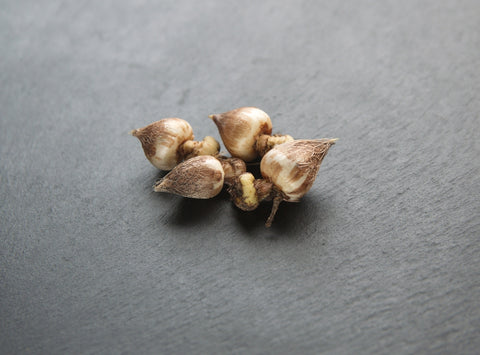
About Freesias
Freesias are exotic-looking blooms that are adored for their vibrant, funnel-shaped flowers. Freesias boast a strong and spicy/sweet fragrance, making excellent fresh cut flowers. The slender stems can reach between 30-60 cm in height. Freesias are usually planted in pots and borders. We offer Freesias in a wide variety of wonderful colors.
How to Grow Freesias
- When growing Freesias in indoor pots for early summer flowering, plant from January to March under cover. To grow outdoors, plant from April to June.
- Potting compost or well-drained soil is important as Freesias are likely to rot in heavy or waterlogged soil. For pots, use a soil-based potting compost that is mixed with around a quarter to a third by volume of coarse grit.
- Plant the long, slender Freesia corms with pointy-end up, at a depth of 3-5cm, and spaced 5cm apart.
- Once planted it’s important to water well and then stand the pot in a cool, shaded, frost free place – a temperature of around 5°C is ideal. After 3-4 weeks when shoots appear, move into a warmer and sunny position.
Caring for Freesias
- Once growth appears, water Freesias regularly with the aim to keep the compost moist but do not over-water.
- Start feeding Freesias when the flower buds begin to form. Use a liquid fertilizer high in potash and apply every 10-14 days.
- Supporting Freesias is important to prevent the stems from flopping over. Ready-made supports or twiggy sticks pushed into the soil work well.
- Freesia bulb can be dried for you to replant the next year. Once the leaves have died back completely, lift the bulbs from the soil. Once lifted, put them in a warm place for several months to ripen the bulbs, mimicking the conditions of a South African summer. Then, store in a paper bag in a cool frost-free place to plant the following year. The effects of the heat treatment will have worn off so the saved bulbs can only be planted in spring.
- If waterlogged, Freesia leaves can go yellow and the bulbs can rot. If growing in pots, check after watering to make sure they aren’t sitting in water.

